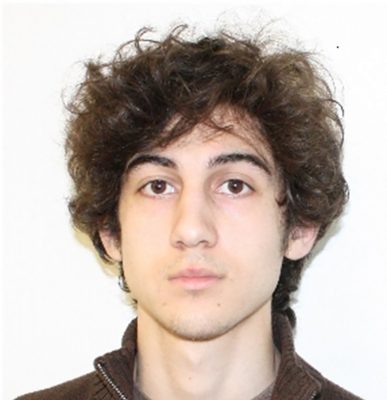
The Supreme Court ruled 6-3 on March 4 to reinstate the death penalty for Dzhokhar Tsarnaev, who was convicted in 2015 for the infamous Boston Marathon bombing in 2013.
Three people died and more than 260 people suffered injuries, with at least 17 people losing limbs as a result of the attack. After a four-day police hunt, Dzhokhar was caught. Tamerlan Tsarnaev died in a shootout a day earlier.
“Dzhokhar Tsarnaev committed heinous crimes. The Sixth Amendment nonetheless guaranteed him a fair trial before an impartial jury. He received one,” Justice Clarence Thomas wrote in the Court’s majority opinion.
In October 2020, the U.S. Court of Appeals for the First Circuit overruled the U.S. District Court for the District of Massachusetts’s 2015 death sentence. A three-judge panel found that the District Court had not adequately screened jurors for pretrial exposure to media coverage.
The panel also found the court had abused its authority during sentencing by refusing to admit evidence that Tamerlan had been involved in a triple-homicide in Waltham, Mass. in 2011. That evidence supported the defense that Tamerlan had been the mastermind of the bombings, and had pressured his younger brother into abetting the attack.
The parents of eight-year-old Martin Richard, one of the three people killed in the attack, urged prosecutors to drop the death penalty in a 2015 letter in The Boston Globe, saying the long process would bring more distress to the families of victims and survivors.
“We know that the government has its reasons for seeking the death penalty, but the continued pursuit of that punishment could bring years of appeals and prolong reliving the most painful day of our lives,” the Richard family wrote in the letter.
Massachusetts has outlawed the death penalty in state courts since 1984. Tsarnaev’s case has been viewed differently by lawmakers in Massachusetts because the death penalty is an option under federal law.
In a statement following the Court’s ruling, Gov. Charlie Baker wrote he hoped the decision would, “bring some sense of justice for victims of the Boston Marathon bombing and their families.”
U.S. Congresswoman Ayanna Pressley, whose congressional district includes a section of Boylston Street where the bombs were detonated, said the decision was “deeply disappointing.”
“State-sanctioned murder is not justice, no matter how heinous the crime,” she said in the statement.
The three liberal justices dissented in their opinion, believing that Tsarnaev’s death sentence was wrongfully handed down.
Michael Meltsner, a professor of law at Northeastern University, said the Supreme Court’s decision displays the rigidity of the current bench’s position on the death penalty.
“The present conservative majority of the Supreme Court is not interested in any reform or change in the capital punishment system,” Meltsner said in an interview.
Only 16 federal executions have been carried out since 1963 — three under George W. Bush and 13 under Donald Trump.
“The people serving on juries and many prosecutors have restricted the use of capital punishment,” Meltsner said. “And the only remaining capital punishment is in a few states and a few counties in those states. If you add the 10 states that have not executed anyone in 10 years, 35 of the 50 states [have] de facto abolished the death penalty.”
Meltsner expressed the difficulty of justifying the use of capital punishment.
“A criminal punishment has to have a rationale,” Meltsner said. “It has to have a public policy justification. There is no justification, other than pure revenge, for a policy that only executes a tiny, tiny, tiny fraction of all the potential people who have committed murder.”
Renée Landers, professor of law at Suffolk University, said while she opposed to the death penalty, if there was a case in which a consideration of the death penalty might be warranted, “the marathon bombings probably merited that consideration.”
Landers said it was perplexing that the Justice Department continued to seek the death penalty for Tsarnaev despite the Biden Administration reimposing a suspension of federal executions.
“In light of that [suspension], why is the Justice Department so anxious to ensure that death remains proposed in this case when, in all likelihood, they themselves have no intention of carrying it out?” Landers said.
Landers said the Court’s ruling could bring more attention to Tsarnaev in the coming years while the details regarding his execution are finalized.
“I can foresee a whole lot of challenges — the method of the execution, the timing of the execution, who will he have an opportunity to see before the sentence is carried out?” she said. “There are a myriad of issues like that that could be raised.”






















































































































https://boostupsm.com • Mar 17, 2022 at 3:43 am
I am genuinely delighted to glance at this website posts which contains plenty of useful facts,
thanks for providing such data.